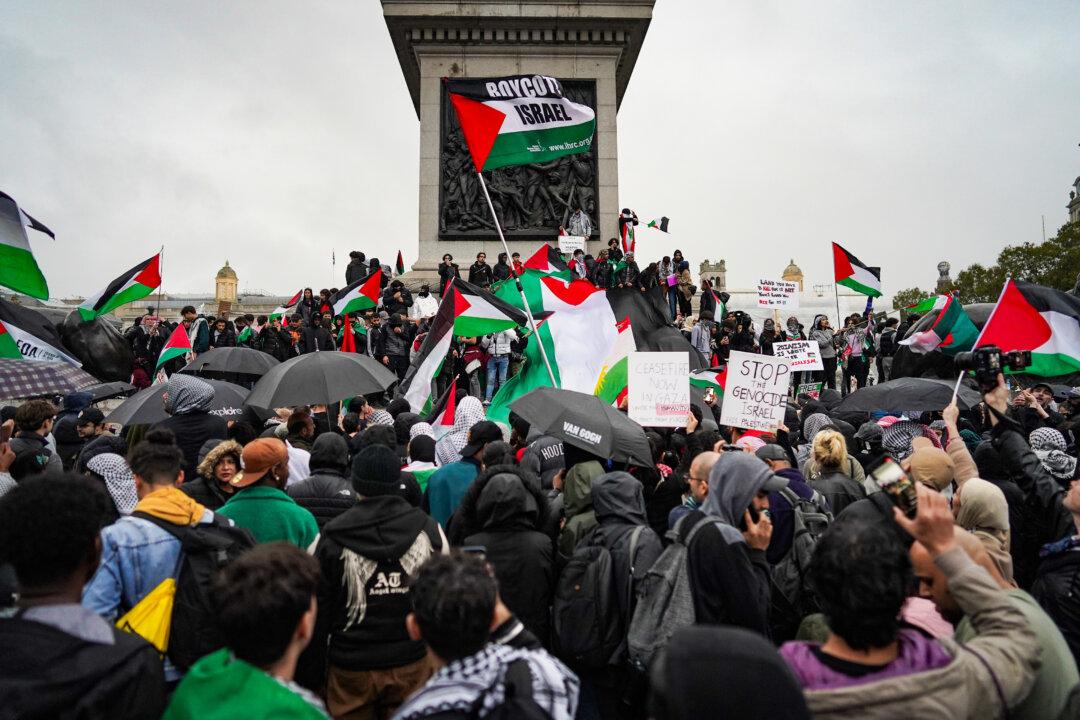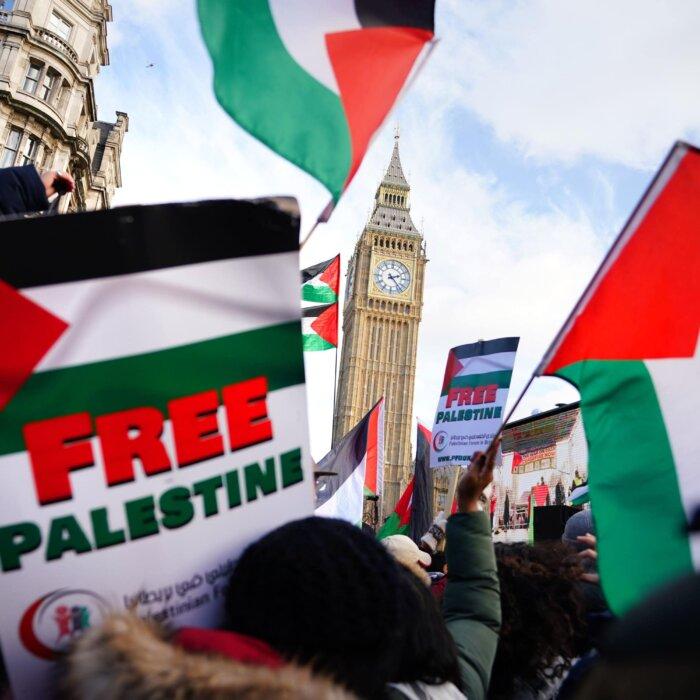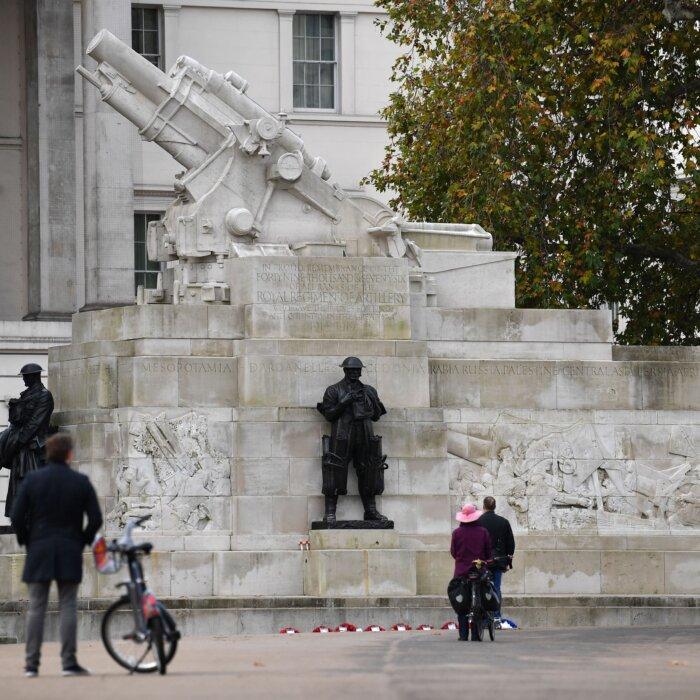Police in England and Wales will be given new powers to arrest protesters engaged in “disruptive” and “dangerous” disorder, with offenders facing up to three months in prison and a £1,000 fine.
The Home Office announced on Thursday that it would be adding amendments to the Criminal Justice Bill which would ban climbing on war memorials and the possession of pyrotechnics like flares and fireworks at protests.
Protesters will also no longer be able to get away with “disruptive” offences, the department said, such as blocking public highways. In addition, police will be given powers to arrest demonstrators who cover their faces in an attempt to avoid prosecution.
Home Secretary James Cleverly said in a video posted to X, formerly known as Twitter: “We are banning climbing on war memorials. We should honour those whose service enables us to live freely and whose sacrifice has protected the very right to protest itself.”
Mr. Cleverly added that while “the right to protest is fundamental to democracy,” it “does not extend to disrupting the lives of hard-working people.”
The measures, added to the Criminal Justice Bill which is currently being considered by Parliament, will see people who climb onto national monuments facing up to three months in jail and a £1,000 fine.
The proposals will also see the introduction of a new offence for possession of pyrotechnics such as flares and fireworks during protests, with offenders receiving a fine of up to £1,000.
Protesters wearing face coverings in an attempt to evade prosecution could be sentenced to one month in prison and receive up to a £1,000 fine.
The Home Office also said that protesters engaging in “disruptive” offences, such as blocking roads, “will face justice.”
‘There Is a Difference Between Protest and Criminal Activism’
Essex Police Chief Constable BJ Harrington, who leads the National Police Chiefs Council’s work on public order and safety, welcomed the plans, adding that the amendments will ensure officers “have the powers that we need to get [the] balance right between the rights of those who wish to protest, and those impacted by them.”Mr. Harrington said, “There is a difference between protest and criminal activism, and we are committed to responding quickly and effectively to activists who deliberately disrupt people’s lives with reckless and criminal acts.”
However, human rights group Liberty said the measures were a “threat to everybody’s right to protest” and the government should reverse its decision.
Director of Liberty Akiko Hart said: “It is extremely concerning that the government is trying to impose even more conditions on not only when people can protest, but how they protest too.
“We all have the right to make our voices heard on issues that matter to us, but this government has continually made it harder for us to do that.”
Writing in The Telegraph on Wednesday in advance of her successor’s official announcement, Ms. Braverman said: “But we must go further if we are serious. Firstly, we need new laws to address the phenomenon of mass extremism on our streets. The bar is set too high, so prosecutions are typically not sought.”
The former home secretary said that ministers should be able to ban demonstrations which they deem could incite violence or which harm the public good.
Jewish Charity Welcomes Proposals
Stephen Silverman, director of investigations and enforcement at the Campaign Against Antisemitism, reacted to the announcement in a press release, saying: “For months now, we have been asking for tougher restrictions to be placed on these protests, which have made our urban centres no-go zones for Jews. While the police have failed the Jewish community and law-abiding Londoners, the Government, to its credit, is listening.”Mr. Silverman said that the new laws would “help address the mob mentality that we have observed in these protests, including the use of fireworks against police officers, desecration of war memorials and severe disruption to travel.”
“There is no justification for such scenes, and now, there will be no legal defence. The people of this country expect the lawlessness on our streets to be brought firmly under control, and with these changes there are now even fewer excuses for police inaction,” he added.







